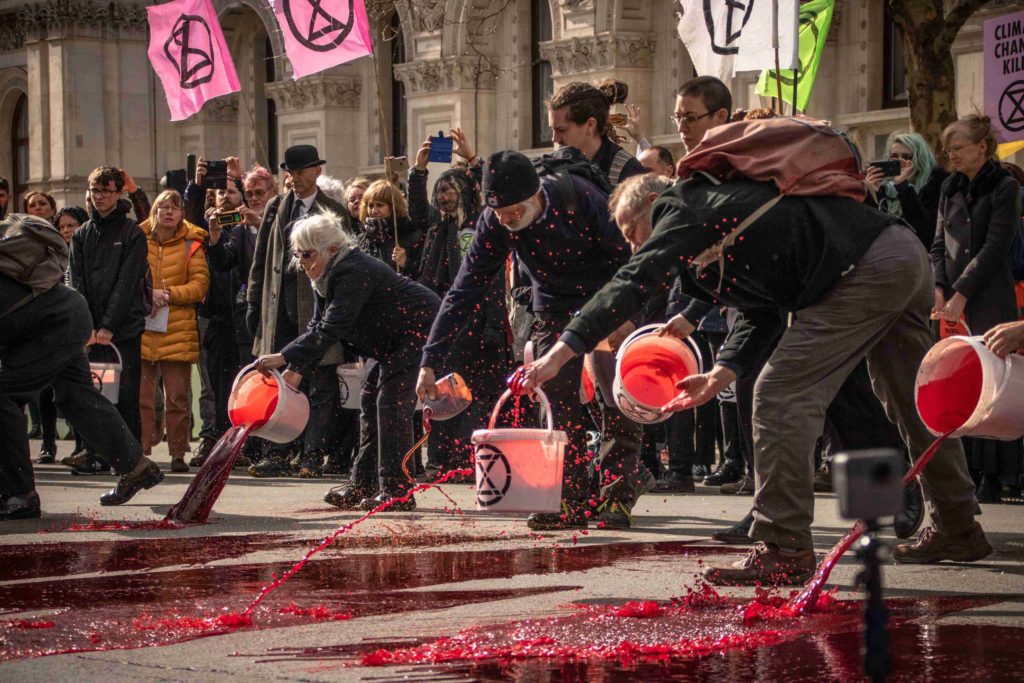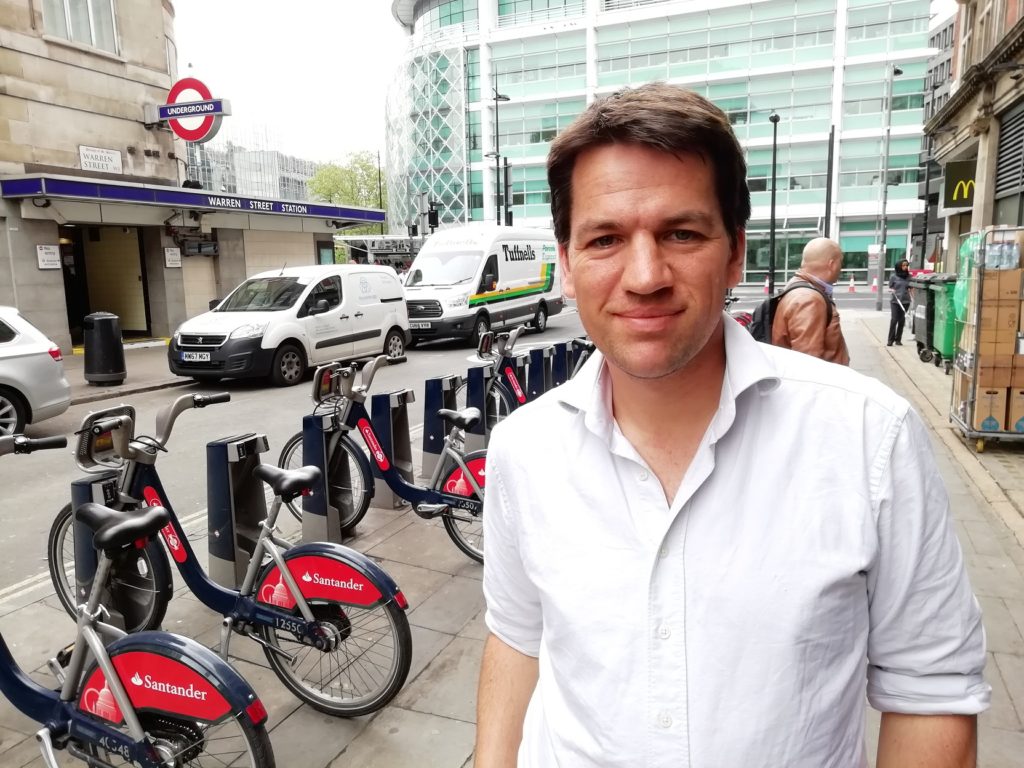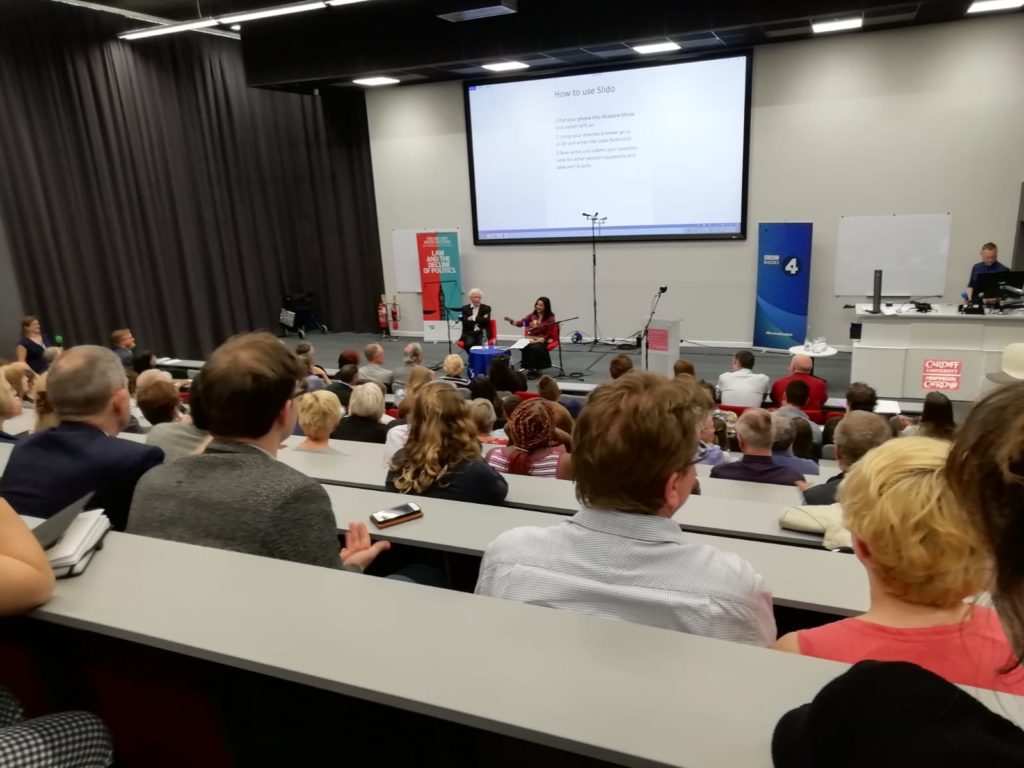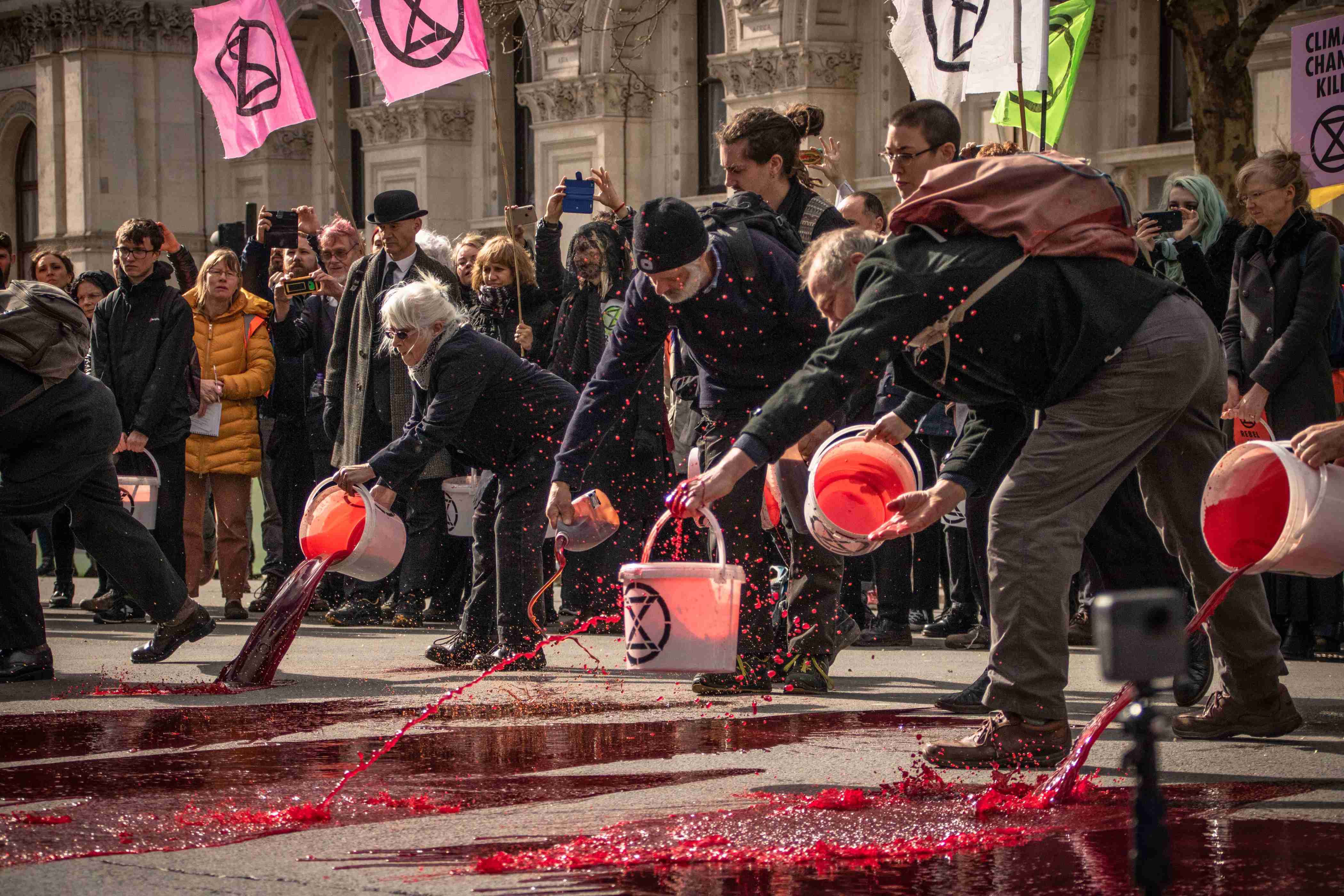Last month thousands of protesters brought London to a standstill demanding a climate emergency. Support for Extinction Rebellion seems to be growing, but can they turn this into political action?

As she was watching the police officers surround the perimeter of London’s Shell office, Farhana Yamin’s resolve only strengthened. The moment police turned towards protesters marching forward, she took the opportunity to breach the perimeter and successfully evaded the nearby policemen to superglue her hands on the building’s pavement.
Though it was her first experience of civil disobedience and getting arrested, she is not new to the climate struggle. Farhana is at the heart of the climate debate and had played a significant role to negotiate the landmark Paris agreement. After having worked for the UN system and other multilateral institutions for three decades, she realized that her diplomatic efforts had been going nowhere, and thereby resorted to getting arrested while protesting for climate action.

Now Farhana represents thousands of people fighting for climate justice. She is the Political Team Leader of Extinction Rebellion – an international non-violent civil disobedience movement calling for radical climate action.
These fossil fuel companies have colluded and paid lobbyists to confuse climate science. I was handcuffed for criminal damage but these (oil and gas) companies had knowledge as early as 1977 that their actions were causing ecosystem destruction but they walk away free.
Farhana Yamin, Political Team Leader, Extinction Rebellion
“The domestic emissions of UK along with many other countries are due to unsustainable development and London has become the financial heart of funding investments in new oil, gas and coal around the world,” she says.
So far, 40,000 people have signed up to volunteer for Extinction Rebellion, showing an increasing number of people willing to get involved in climate action. The organization has now expanded to 49 countries around the world, with 60,000 people on their mailing list.
Last month in London, the group held protests at the Parliament Square, Oxford Circus, Waterloo Bridge and Marble Arch, demanding radical climate action from the government. Tens of thousands of protesters joined the rebellion, where the actor Emma Thompson and Olympic gold medalist Etienne Stott were present. More than 1,000 activists were arrested in action.
Farhana talks about empowering people, in order to raise awareness and advancing climate justice. “Nobody in power gives away power. People have to rise up and this is what Extinction Rebellion is doing. Disruption is the thing and we actually showed what London looks like without cars. That’s the rationale behind our movement.”
She informs why the people have joined the rebellion. “Extinction Rebellion is part of the broader set of movements, along with the youth strike by Greta Thunberg as well as the work of community and indigenous people fighting for their lands. I have joined Extinction Rebellion because my work for 30 years in the UN had been frustrating. Finally people have understood that these (Extinction Rebellion activists) are not middle class hippies but people with a genuine reason to rebel. It’s a psychological kind of tipping point.”
“Politicians are not listening. The entire system needs to be given a shock, which should be so intense that everyone starts to listen. The pledges made by countries to limit temperatures as part of the Paris agreement are insufficient and would lead to 3°C of global warming,” adds Farhana.
Greta Thunberg, the climate activist who received global attention through her school strikes also came to one of the Extinction Rebellion protests in London where she called upon the protesters to ‘put pressure on the people in power’.
Extinction Rebellion was founded by Roger Hallam, Gail Bradbrook and Simon Bramwell along with other activists in Stroud on October 31, 2018. One of the reasons was the sheer concern that the planet has only 12 years to limit global warming to 1.5°C above pre-industrial levels, as pointed out by the Intergovernmental Panel on Climate Change (IPCC)’s Global Warming of 1.5°C report.
The rebels call for using the approach of non-violent civil disobedience to achieve radical change and minimizing the risk of ‘human extinction and ecological collapse.’ Their three main demands from the UK government are declaring a climate and ecological emergency; stopping biodiversity loss and bringing down emissions to net zero by 2025; and creating a Citizens’ Assembly led by public.
It was due to the non-violent protests of Extinction Rebellion, activism by Greta Thunberg and Sir David Attenborough’s climate programmes that have forced the UK government to take remedial measures.
The Extinction Rebellion activists met the Mayor of London Sadiq Khan who agreed to explore the idea of a Citizens’ Assembly . This delegation also met the Secretary of State for Environment, Food and Rural Affairs, Michael Gove. Though Gove was said to be ‘open-minded’ to the idea of a Citizens’ Assembly, he didn’t agree to reducing UK emissions to net zero by 2025 or declaring a climate emergency.
However, it was the Leader of the Opposition Jeremy Corbyn, who tabled a motion to declare an ‘environment and climate emergency’ in the UK after speaking at an Extinction Rebellion protest. The bill was approved without a vote.
During the assembly debate for the climate emergency, Corbyn categorically stated that he was “deeply moved a few weeks ago to see the streets outside this parliament filled with coloring noise by children chanting Our Planet Our Future.”
We are witnessing an unprecedented upsurge of climate activism with groups like Extinction Rebellion forcing the politicians in this building (parliament) to listen. That is a very necessary wakeup call.
Jeremy Corbyn, Leader of the Labour Party and Leader of the Opposition
Scotland and Wales have declared climate emergencies as well signaling the tremendous power of people in changing government policies.

Political parties also seem convinced that the demands of Extinction Rebellion are justified. Alex Armitage, Co-convener of the Green Party’s Drugs Policy Working Group is one of them, who regularly participates in the activities of Extinction Rebellion and also assists them with media outreach.
When asked why Extinction Rebellion has captured peoples’ imagination the way it has, Alex tells that its philosophy involves breaking the law peacefully. “The idea of people lying down on the road till the point of arrest has gained hands on trust. Extinction Rebellion has managed to successfully communicate to the public that the issue of climate change is an emergency and that Extinction Rebellion doesn’t want their money but expertise and skills to bring about a change.”
These protests are like festivals which has led people of all kinds to join them. Even I took my son along to the protest and we played football on one of the busiest streets of London. In my whole life in the UK, I never felt alive like this before. It gave me a feeling that we are making history.
Alex Armitage, Co-convener, Green Party’s Drugs Policy Working Group
“People have been giving money to Greenpeace for four decades and emissions have gone up by 60%. Critics say that Extinction Rebellion is trying to put itself in a negotiating role but if we look at the trends, including hottest temperatures, extreme weather events and threat to food security, we realize that the climate emergency is more urgent than we thought,” adds Armitage.
He warns that if the government failed to live up to its promises, the rebels might even take more severe actions. “That means the rebels gluing themselves to underground trains,” he adds.
Alex further says, “The Labour Party has it in their DNA to protest. Many of their representatives are inspired by Extinction Rebellion but there’s conflict of interest for representing workers in the high-carbon economy. Whereas, the Green Party’s agenda fits well with Extinction Rebellion, as it aspires to take action outside the political ambit to make an impact. Many people in the Green Party, including myself, are active members of the rebellion.”
On the other hand, Lord Jonathan Sumption, the former Justice of the Supreme Court of the UK at the BBC’s Reith Lectures, on the question of the legitimacy of the demands of Extinction Rebellion, disagrees with their ideology of ‘taking radical action.’

Lord Jonathan says, “Citizens’ Assemblies are not a useful mechanism for decision-making. It would be hard to discuss how representative it is and it cannot be a substitute for national parliament.”
Not everyone might agree with Lord Jonathan, as Extinction Rebellion’s non-violent civil disobedience approach has received massive public support, which is evident from the supporters who showed up during the protests.
Extinction Rebellion has been quite successful in achieving its demands, as an environment and climate emergency has been declared in the UK and the government has agreed to explore the idea of having Citizens’ Assemblies. The rebels have given people hope by inspiring them to become the real agents of change and proving that activism can lead to political action. The UK government should now live up to its promise by instilling a green revolution and ensuring that they contribute to limiting temperatures to 1.5°C, which holds the key to a safer planet.

